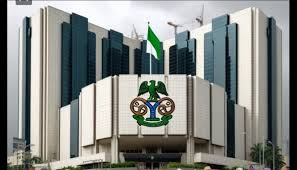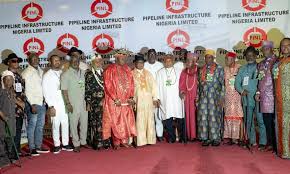Business
W’Bank Likely To Grant Nigeria’s $1.1bn Loan Request

The World Bank is set to approve a total of $1.13billion in loans for Nigeria before the end of March 2025.
This is part of ongoing efforts to support the country’s economic resilience, health security, and education reforms.
Information published on the World Bank’s website, stats that three key projects for Nigeria are at the stage of negotiation, with approval dates set for this month.
Among the projects set for negotiation is the Accelerating Nutrition Results in Nigeria 2.0 programme, valued at $80million, which is expected to be approved by March 31, 2025.
This initiative is aimed at improving nutrition outcomes, particularly among vulnerable groups, by enhancing access to essential dietary support and reducing malnutrition rates.
Another project in the negotiation phase is the Community Action for Resilience and Economic Stimulus Programme, which has a commitment value of $500million and is expected to be approved by March 24, 2025.
The project is designed to provide economic stimulus for community-driven initiatives to strengthen economic resilience and growth.
The “HOPE for Quality Basic Education for All” programme, with a proposed funding of $552.2million, is also at the negotiation stage and is expected to secure approval by March 31, 2025.
This initiative seeks to improve the quality of basic education by addressing infrastructure deficits, enhancing teacher training, and increasing educational accessibility across the country.
The potential approval of these loans comes at a time when Nigeria continues to grapple with economic challenges, including foreign exchange liquidity constraints, fiscal deficits, and mounting debt servicing obligations.
The Tide’s source had earlier reported that the Federal Government would likely secure six new loans totalling $2.23billion from the World Bank in 2025 as the international financial institution continues to support the country’s economic and structural reforms.
Data from the World Bank’s official website indicates that this will bring Nigeria’s total approved loans to $9.25billion over three years, reflecting a growing reliance on multilateral funding to support critical sectors of the economy, including infrastructure, healthcare, education, and economic resilience.
An analysis of Nigeria’s loan approvals from the World Bank since 2023 under the administration of President Bola Tinubu shows a significant increase in funding commitments.
In 2023, the World Bank approved loans amounting to $2.7billion, which primarily targeted projects in renewable energy, women’s empowerment, education, and the power sector.
The funding approvals recorded in 2024 significantly surpassed those of the previous year, with a total of $4.32billion allocated to various projects. This increase was largely due to Nigeria’s growing need for financial assistance to stabilise the economy amid mounting fiscal pressures and rising public debt.
For 2025, Nigeria is looking to secure six new loans from the World Bank, with a combined value of $2.23billion. The planned loans cover key sectors, such as digital infrastructure, healthcare, education, nutrition, and community resilience.
While the proposed World Bank loans could provide much-needed fiscal relief, concerns remain over the country’s rising debt burden. Recent data from the Central Bank of Nigeria indicate that the country has spent $5.47bn on external debt servicing in the past 14 months, highlighting the strain on its foreign reserves.
The Minister of Finance and Coordinating Minister of the Economy, Wale Edun, earlier said that rather than accumulating more debt, the government is prioritising alternative funding sources such as revenue generation, concessional loans, and strategic investments.
“We are at that optimisation stage, where there is less focus on borrowing, particularly from the commercial markets, which is quite high. We are focusing more on optimising assets and attracting private sector investment, whether domestic or foreign,” Edun said.
However, the consistent growth in the World Bank’s financial commitments to Nigeria, from $2.7bn in 2023 to $4.32bn in 2024, and the anticipated $2.23bn in 2025, highlights the country’s increasing dependence on concessional financing to drive structural reforms and public sector investments.
The source further observed that Nigeria has retained its position as the third-largest debtor to the World Bank’s International Development Association, despite its exposure dropping to $16.8bn as of December 31, 2024.
According to the World Bank’s latest financial statements for the fiscal year up to December 2024, Nigeria’s debt to the IDA dropped by $300m in three months from $17.1bn recorded in September 2024.
However, the current amount is still higher than the $16.5bn recorded in June 2024.
According to data from the external debt report released by the Debt Management Office, the World Bank’s share of Nigeria’s debt totals $17.32bn, with the majority owed to the International Development Association, which accounts for $16.84bn, which represents 39.14 per cent of Nigeria’s total external debt.
The International Bank for Reconstruction and Development, another arm of the World Bank, is owed $485.08m, or 1.13 per cent.
Business
NCDMB, Partners Sweetcrude On Inaugural Nigerian Content Awards

The Nigerian Content Development and Monitoring Board (NCDMB), in partnership with a firm, Sweetcrude Ltd., has announced detailed selection criteria for the inaugural “Champions of Nigerian Content Awards”, designed to honor outstanding contributions to local content development in Nigeria’s oil and gas sector.
The Tide learnt that the event, scheduled to hold 21st May, 2025, at the NCDMB’S content tower headquarters in Yenagoa, capital of Bayelsa State, will recognize individuals and organizations that have demonstrated exceptional commitment to advancing Nigerian Content in 2024.
The Tide further gathered that the ceremony will coincide with the Nigerian Oil and Gas Opportunity Fair (NOGOF), which promises to spotlighting industry excellence and contributions to national economic transformation.
A statement by the Board’s Directorate of Corporate Communications and Zonal Coordination says the event has 12 Award Categories, which include, “Nigerian Content Icon of the Year”, “Nigerian Content Lifetime Achievement Award”, “Nigerian Content International Upstream Operator of the year”, and the “Nigerian Content Independent Upstream Operator of the year”.
Others are, “Nigerian Content Midstream Operator of the year”, “Nigerian Content Downstream Operator of the year”, “Nigerian Content International Service Company of the year”, Nigerian Content Indigenous Service Company of the year”, and the “Nigerian Content Innovator of the year”.
Also included are, “Nigerian Content Financial Services Provider of the year”, “Nigerian Content Media Organization of the year”, and “Women in Leadership Award for Promoting Gender Equality and Empowerment”.
According to the NCDMB, the criteria for oil and gas operators will include key and empirical benchmarks such as Production output for crude oil and gas volumes, Compliance with Nigerian Content Plans (NCPs) and Nigerian Content Compliance Certificates (NCCCs).
Other criteria are adherence to NOGICD Act reporting requirements, such as submission of Nigerian Content Performance Reports and Employment & Training Plans.
The Board’s statement added that similar criteria will apply to financial institutions, media organizations, and individuals, ensuring a transparent and merit-based selection process.
“Winners for the Nigerian Content Icon of the Year, Innovator of the Year, and Women in Leadership Award will also be selected based on measurable performance indicators.
“The Advisory Committee of Industry Titans will Oversee the process to uphold the prestige of awards. The Committee consist of distinguished experts set up to oversee nominations and validate winners”, the NCDMB said.
Members of the committee, according to the Board, include: Pioneer Executive Secretary of the NCDMB, Dr. Ernest Nwapa; Secretary-General, African Petroleum Producers Organization, Dr. Omar Farouk; and former Zonal Operations Controller, DPR, Mr. Woke Akinyosoye.
The Statement quoted the Executive Secretary, NCDMB, Engr. Felix Omatsola Ogbe, as emphasizing that the awards aim to becoming the oil and gas sector’s equivalent of the Oscars, celebrating genuine impact rather than mere participation.
“This recognition is reserved for those who have gone beyond compliance to drive tangible growth in Nigerian Content.
“With a focus on credibility, compliance, and measurable impact, the Champions of Nigerian Content Awards is poised to set a new standard for excellence in Nigeria’s energy sector”, the NCDMB Executive Scribe said.
By: Ariwera Ibibo-Howells, Yenagoa
Business
Nigeria’s Debt Servicing Gulped N696bn In Jan – CBN

Nigeria’s apex Banking institution, Central Bank of Nigeria (CBN), has declared that Federal Government’s debt servicing increased to N696billion in January 2025.
The CBN’s recently published Economic Report revealed a precarious fiscal position, which worsened in January 2025 as debt servicing obligations exceeded total retained revenue by a wide margin.
According to the report, the Federal Government’s debt servicing obligations for the month stood at N696.27bn, while total retained revenue amounted to only N483.47bn, indicating that debt service alone consumed about 144 per cent of all government earnings.
This development highlights the growing debt burden and dwindling fiscal space facing Africa’s largest economy.
According to the report, despite slight improvements in some revenue categories, the retained earnings were grossly inadequate to cover obligatory debt repayments, exposing the government’s continued reliance on borrowing to meet basic obligations.
The report further revealed that retained revenue in January 2025 only recorded a marginal 0.89 per cent increase when compared with the N479.21bn generated in the corresponding month of 2024.
”FGN retained revenue declined in the review period, owing largely to lower receipts from Federal Government Independent Revenue and FGN’s share of exchange gain.
“At N0.48tn, provisional FGN retained revenue was 69.19 and 70.40 per cent below the levels recorded in the preceding period and monthly target, respectively”, it revealed.
While this points to stagnation rather than growth, the marginal rise was wiped out by the overwhelming debt service obligations.
The retained revenue components showed that the Federation Account contributed N167.69bn, while the VAT Pool Account delivered N90.73bn.
By: Corlins Walter
Business
Wage Award: FG Plans 5 Months Arrears Payment

The Federal Government has announced plans to commence the payment of the outstanding N35,000 wage award arrears owed workers in the Federal Civil Service.
A statement issued by the Office of the Accountant-General of the Federation (AGF), which was signed by the Director of Press and Public Relations, Bawa Mokwa, said the outstanding arrears will be paid in instalments, with workers set to receive N35,000 per month for five months.
It clarified that the first tranche of the wage award arrears would be released immediately after the April salary payment.
“The wage award arrears was not paid with the April 2025 salary; it will come immediately after the salary is paid”, the statement read.
The Federal Government had earlier disbursed wage awards to federal workers for five months as part of efforts to cushion the impact of economic reforms. However, five months’ arrears remained unpaid.
The AGF office further reiterated the government’s commitment to fully implementing all policies and agreements relating to staff remuneration and welfare, noting that such efforts were geared towards enhancing productivity and operational efficiency across ministries, departments, and agencies.
The N35,000 wage award was introduced in 2023 as a palliative measure to support workers following the removal of the petrol subsidy and other economic adjustments.
In January this year, the Federal Government assured workers that it would clear the arrears of the N35,000 wage award, just as it also said the government had resumed the payment of the wage award.
The government also reiterated its commitment to addressing issues in the National Minimum Wage agreement reached with the Organised Labour in 2023.
The Minister of Labour and Employment, Nkeiruka Onyejeocha, had disclosed the government’s commitment towards implementing agreements with trade unions during separate meetings with the leadership of the Trade Union Congress and Congress of University Academics, in Abuja.
The Nigeria Labour Congress had criticised the Federal Government over the delay in the payment of the minimum wage for certain workers in the federal civil service.
Also, the Federal Government had earlier blamed the delay in payment on the prolonged approval of the 2025 budget.
By: Corlins Walter
-

 News3 days ago
News3 days agoOver 80 Army captains to sit for 2025 promotion exam in Benin
-

 Politics3 days ago
Politics3 days agoLP Crisis, Poetic Justice For Betrayal – Ex-presidential Aspirant
-

 Sports3 days ago
Sports3 days agoAfroBasket: D’Tigers To Play Against Tunisia, Cameroon, Madagascar
-

 Oil & Energy3 days ago
Oil & Energy3 days agoStakeholders Laud PINL For Oil Pipeline Safety
-

 News3 days ago
News3 days agoHYPREP Commits To Prioritising Workers’ Welfare, Job Creation
-

 News3 days ago
News3 days agoS’Court Holds Valedictory Session For Late Justice Ogwuegbu, Wed
-

 Politics3 days ago
Politics3 days agoTinubu Changing Leadership Narrative In Nigeria – Wike
-

 Sports3 days ago
Sports3 days agoLa Liga: Ancelotti Hails Potential Successor

